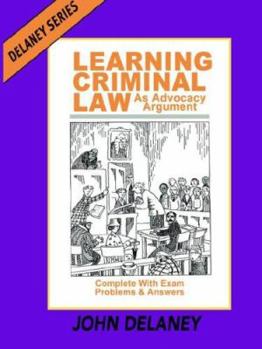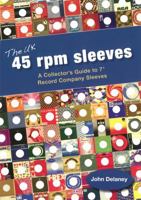Learning Criminal Law as Advocacy Argument: Complete with Exam Problems & Answers
Select Format
Select Condition 
Book Overview
No Synopsis Available.
Related Subjects
LawCustomer Reviews
Rated 5 starsVery Helpful Book
This book did not just teach me criminal law by presenting legal arguments, which I find to be a more engaging way of learning. It also taught me how to answer law school exams. The author arranges questions so one starts with easier questions and progress to harder ones - the ones you may see on a real law school exams or the bar exam - with model answers given and explained. I can feel that the author wants the readers to...
0Report
Rated 5 starsabsolutely great. combine with PLS.
This book is essential to your first year criminal law course. As another reviewer, Childers, notes: you need to learn not only the substantive criminal law, but how to write like a lawyer. The E & Es are close but they won't get you there. You need to practice advocacy argument from both sides for every issue. You need to know how to quickly drop in a comment about policy for extra points. You need to practice interweaving...
0Report
Rated 5 starsexcellent book
I really like the advocacy argument learning style. It's much more interactive and learning through advocacy arguments will definitely prep me for a good advocacy answer come exam time.
0Report
Rated 5 starsUnique among law school study aids!
Every law student will recognize the series Examples & Explanations, Nutshells, Understanding and perhaps Blond's. I've worked with all of them. Delaney's "Learning Criminal Law" is superior to all of them! To anyone who ever took LEEWS, Fleming's, or read Delaney's "How to Do Your Best On Law School Exams" and wished for more practice this is your answer! I liked many of the Example & Explanations series because they...
0Report
Rated 5 starsPowerful Student Aid
Delaney's "Learning Criminal Law As Advocacy Argument" is more than a primer for first year crim law (although it is that, as well). It is also a tutorial on what Delaney calls "lawyerly thinking" and effective legal writing. Different than the "Examples and Explanations"-type primers, "Advocacy Argument" instructs regarding a systematic way to think and write about law. And, since the writing method is designed to help the...
0Report






























